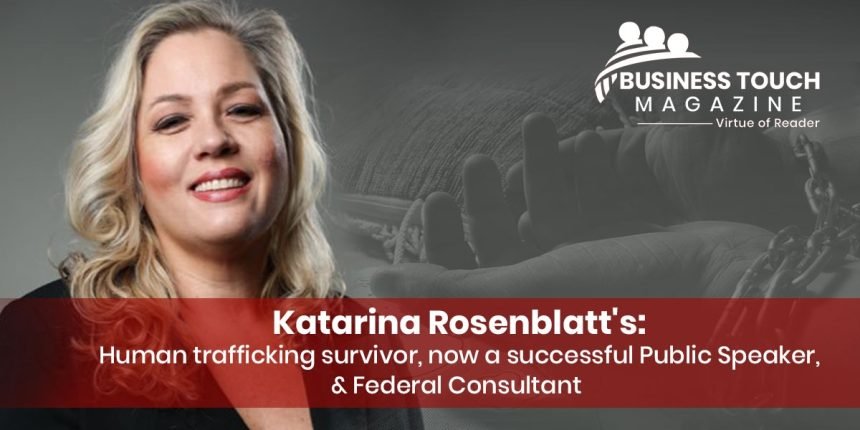According to a report from the International Labor Organization (ILO) and Walk Free Foundation:
An estimated 24.9 million victims are trapped in modern-day slavery. Of these, 16 million (64%) were exploited for labour, 4.8 million (19%) were sexually exploited, and 4.1 million (17%) were exploited in state-imposed forced labour.
3.8 million (24%) forced labour victims are domestic workers 71% of trafficking victims around the world are women and girls and 29% are men and boys.
15.4 million victims (75%) are aged 18 or older, with the number of children under the age of 18 estimated at 5.5 million (25%).
Human trafficking does not always involve travel to the destination of exploitation: 2.2 million (14%) of victims of forced labour moved either internally or internationally, while 3.5 million (74%) of victims of sexual exploitation were living outside their country of residence.
Every year, an estimated 80,000 American children are lured into the sex trade, some as young as eight years old. It is thought that up to 90 per cent of victims are never rescued. First recruited while staying with her family at a hotel in Miami Beach, Katariina Rosenblatt was already a lonely and abused young girl who was yearning to be loved. She fell into the hands of a confident young woman who pretended friendship but slowly lured her into a child prostitution ring.
For years afterwards, a cycle of false friendship, threats, drugs, and violence kept her trapped. As Kat shares her harrowing experiences, listeners will quickly realize the frightening truth that these terrible things could have happened to any child – a neighbour, a niece, a friend, a sister, a daughter. But beyond that, they will see that there is real hope for the victims of sex trafficking.
As global and national awareness of child sex trafficking builds, child-serving providers are educating themselves about the signs that a child or youth may be the victim of sex trafficking. In the case of young Anneke Lucas, “There were plenty of signs” that she was being abused as a child in Belgium, her native country. “There’s not a single picture of my childhood in which I’m smiling,” she said recently. Pimped out from the age of six by her mother, Lucas spent five years trapped in the web of a child pornography syndicate. She was rescued at age 11.
After escaping to Paris, London, and later the United States, her healing journey began.
According to Rosenblatt, “Everyone everywhere can help defeat human trafficking.” She emphasized that sharing her story with others who are victims of human trafficking provides them with the shelter of hope and possibilities for recovery.
Horrific memories of Katariina Rosenblatt
In one of the interviews, Katariina Rosenblatt told the horrific experience she had at a very tender age. “I experienced human trafficking at the age of 13 the first time. I was at a hotel in Miami Beach with my mom…she had left my abusive dad and was seeking peace,”. Rosenblatt says while her mother was at work, a sex trafficking ring operating out of the hotel where they were living began targeting her.
At the hotel, she says she met a 19-year-old girl by the pool who offered to be her friend. “Honestly I didn’t understand half of the things she talked about,” said Rosenblatt. She says they began spending a lot of time together. “I knew at 13, I longed to have a family…a father. My mom always worked and my dad was abusive, so when the girl introduced me to her pimp and he said I could call him daddy, I fell for it and thought this was a safe person,” said Rosenblatt.
There is hope, even on the darkest of days
Katariina Rosenblatt was a lonely and abused young girl, yearning to be loved, wanting attention. That made her the perfect target. On an ordinary day, she met a confident young woman – someone Kat wished she could be like–who pretended to be a friend while slowly luring her into a child trafficking ring. A cycle of false friendships, threats, drugs, and violence kept her trapped.
Following many years of healing and intensive personal work, Katariina has become an advocate for victims, working with policymakers and social justice organizations to ensure a greater understanding of this childhood trauma. From Trauma to Helping Others Kat’s recovery in the United States encompassed years of psychotherapy, yoga, and meditation practice with the Self-realization Fellowship, headquartered in Los Angeles, CA.
Katariina Rosenblatt as the founder of “There Is Hope for Me”
As an adult, Rosenblatt obtained her master’s degree in law and doctoral degree in conflict analysis and resolution. In 2014, Rosenblatt went public with her own story when she published Stolen: The True Story of a Sex Trafficking Survivor. She now works directly with young victims through her non-profit organization, “There Is Hope for Me”.
Rosenblatt is internationally recognized as a human trafficking survivor leader, and she serves as a consultant to the Department of Homeland Security and the FBI. She is also the founder of There is Hope for Me, a nonprofit organization that conducts outreach and is a resource for survivors and their families. Rosenblatt is the author of Stolen, a novel that depicts personal experiences with trafficking, addiction and survival. Before closing the discussion, Rosenblatt called for student volunteers to be in touch and support her in advocating to end human trafficking through social media.
There is H.O.P.E. for Me reaches out to help survivors of domestic violence and human trafficking. The main purpose of this organization is to conduct outreach to and be a resource for survivors and their families. Help is needed to end human trafficking and we can all do our part. Our part here is to help by providing Healing, Opportunity, Purpose, and Empowerment to survivors of these crimes. She’s also written about her life in her book Stolen and speaks internationally about trafficking prevention. She now urges parents to have these tough conversations with their kids
“If they are at any age where they are exposed to strangers, or any online social media app, warn them about social media safety. Warn them about stranger danger…about their ‘no-no zones’…have those difficult conversations,” she said.
Barriers to Identification and Disclosure
Societal denial can function as an effective shield for perpetrators of child sex trafficking, Kat noted. During the time she was trafficked, “I tried to speak up but I wasn’t believed,” she said. “The truth is that no one had any clue, because no one would ever dream that in a country, where most citizens are comfortable and educated, these absolute horrors were happening to kids. That was in a way the perpetrators’ best protection.”
In the United States, the Trafficking Victims Protection Act, passed in 2000 and reauthorized in 2013, clearly defines children or youth under 18 as victims, removing the onus on them of proving fraud or coercion to receive protection. And yet, many states continue to criminalize youth, causing them further trauma by charging them as “child prostitutes” and incarcerating them. Another barrier to identification: youth may be unable or unwilling to disclose their situation.
There is a very real danger of violent reprisal against themselves or family members by the trafficker. Even youth who are recently liberated are often unwilling to disclose their trauma. They may not perceive themselves as victims. Kat recalled that she was in therapy for two years before she was able to admit that she had been a victim; she had clung to the belief that she had been complicit in her abuse.
Qualities to Cultivate
Rosenblatt found through her healing how important it is to remain self-aware and maintain healthy boundaries. “You have to constantly put your internal feelings under a microscope,” she said. She has felt the pull to rescue some of the girls served by the Wayne Foundation. “Luckily,” she said, “I have a way to do a reality check with myself and my doctor.” Added Kat, “If someone is going to feel safe with you, if you are going to become a parental figure for those children, you must be ready. It is important to always self-reflect, to be mindful of your tendencies toward co-dependency, or the need to be a saviour.
” Victims’ stories can be so horrific, and the betrayal of trust so extreme, that providers who work with child sex trafficking victims can be exceptionally vulnerable to secondary traumatic stress. “If your boundaries are not in place, it’s very easy to be a rescuer in your clients’ lives,” Rosenblatt said. “But then you don’t have anything else to give to your family and other survivors.” She urged providers, “Please take care of yourselves. You are needed in this movement.”




